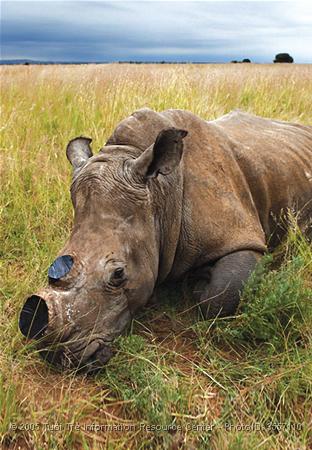Starting Jan 15, local buses will convey messages warning people against the trading and transport of rhino horns in efforts to combat rampant rhino poaching.
The messages are designed to boost bus passengers’ and others’ awareness that those trading and transporting the horns can face six month to seven year imprisonment.
This is one of the joint initiatives from 2013 to 2016 by the Vietnam Convention on International Trade in Endangered Species of Wild Fauna and Flora (CITES) and the Humane Society International to put curbs on the rampant slaying of the endangered animal for its horns.
There’re currently around 28,000 rhinos left in the wild and the five rhino species mostly inhabit Africa and Asia. In 2013, up to 946 rhinos were killed for their horns in Africa alone.
Though the animal’s horns have been scientifically proved not to possess medicinal properties, rumors remain about their miracle capability of curing cancer, bringing down fevers and treating other ailments.
Just like humans’ nails, the rhino horns are made up of keratin and thus have no medical values as believed. In recent years, toxics have been injected into rhino horns to discourage horn users and reduce poaching.























































